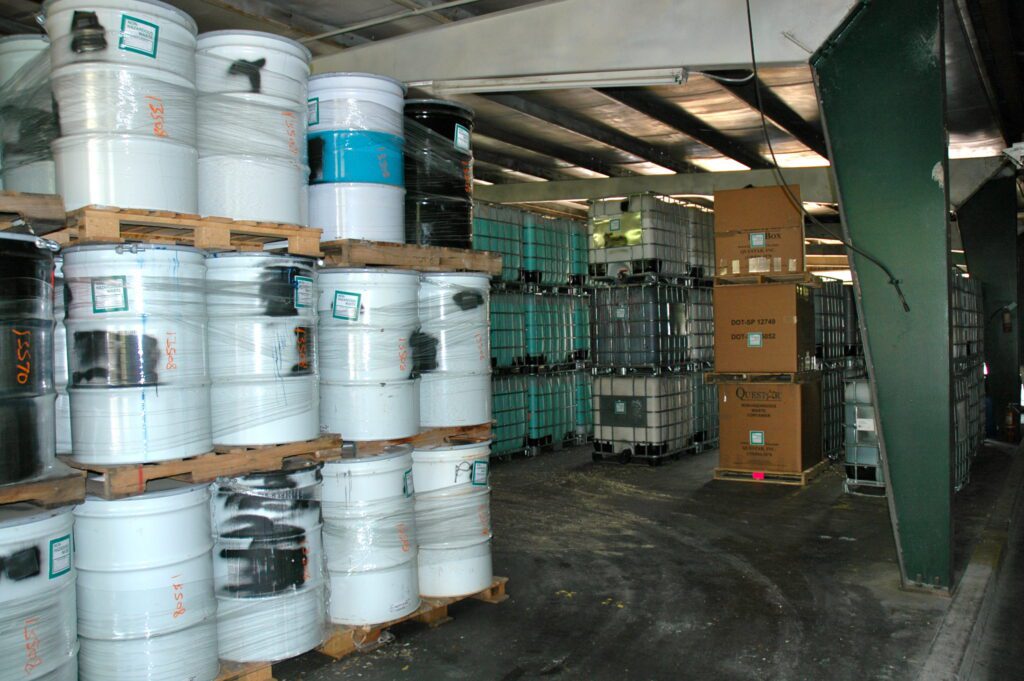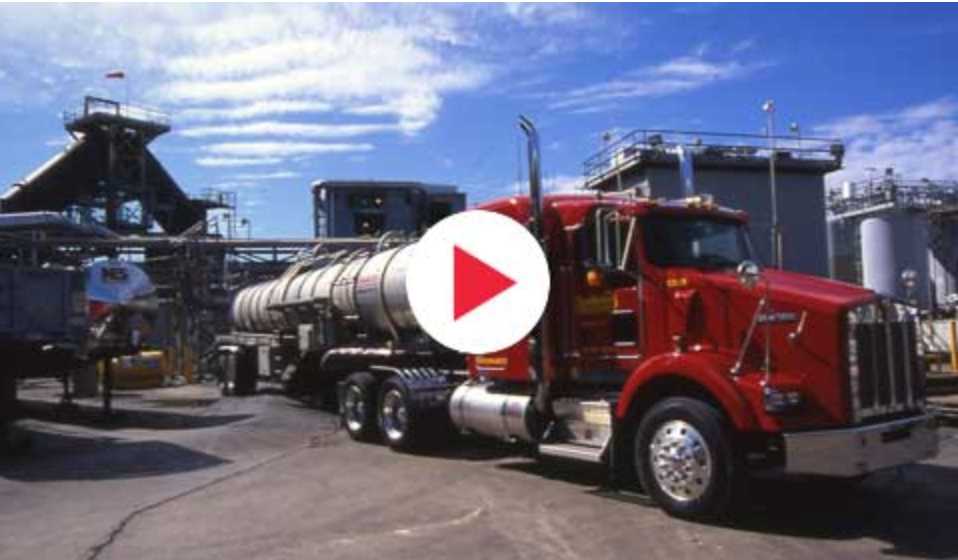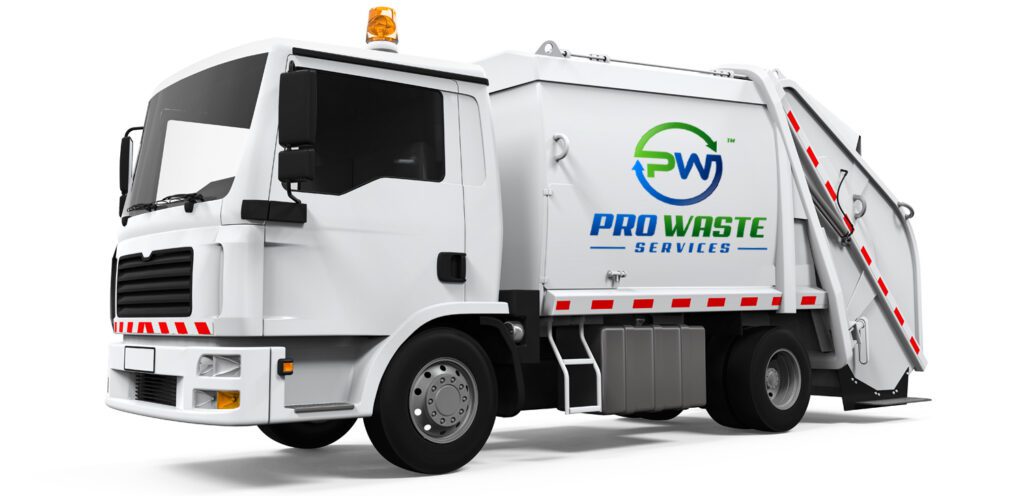If you’re tired of dealing with the hassle and inefficiency of waste removal, look no further than Ohio: Professional Solutions for Efficient Waste Removal. This innovative product offers a comprehensive and reliable solution to all your waste management needs. With Ohio, you can say goodbye to the headaches of waste disposal and hello to a streamlined and environmentally friendly process. Say goodbye to wasted time and hello to a more efficient future with Ohio: Professional Solutions for Efficient Waste Removal.

Overview of Waste Removal in Ohio
Ohio is a state that recognizes the importance of efficient waste removal for the well-being of its residents and the preservation of its natural resources. Efficient waste removal ensures that waste is managed properly, minimizing the environmental impact and promoting public health and safety. The state has implemented various practices and regulations to address the challenges of waste removal and promote sustainable waste management. In this article, we will provide a comprehensive overview of waste removal in Ohio, including the types of waste generated, regulations and policies, professional waste removal services, advanced technologies in waste management, benefits of professional waste removal services, successful waste removal practices in Ohio, and future trends in waste removal.
Importance of Efficient Waste Removal
Efficient waste removal is crucial for maintaining a clean and healthy environment in Ohio. Improper waste disposal can result in pollution of air, water, and soil, leading to adverse effects on human health and wildlife. It is essential to manage waste efficiently to prevent the spread of diseases, reduce greenhouse gas emissions, conserve natural resources, and promote sustainability. By implementing proper waste removal practices, Ohio is taking proactive steps to protect its environment and ensure the well-being of its residents.
Current Waste Management Practices in Ohio
Ohio has implemented various waste management practices to tackle the challenges associated with waste removal. The state follows a comprehensive approach that includes waste reduction, recycling, and proper disposal. Municipalities in Ohio have established recycling programs to encourage residents and businesses to recycle materials such as paper, plastic, glass, and metal. In addition, many cities have adopted curbside recycling collection and drop-off recycling centers to make recycling more accessible.
Furthermore, Ohio has enacted legislation to promote responsible waste management. The Ohio Environmental Protection Agency (OEPA) plays a vital role in overseeing and regulating waste management activities in the state. The OEPA establishes guidelines and standards for waste disposal facilities, monitors compliance with regulations, and issues permits for waste removal operations. The agency works closely with local governments, businesses, and residents to ensure that waste is managed safely and responsibly.
Challenges Faced in Waste Removal
Waste removal in Ohio poses several challenges that need to be addressed effectively. One of the main challenges is the sheer volume of waste generated by the state’s population and industries. Ohio’s growing population, coupled with industrial activities, leads to a significant amount of waste that needs to be managed properly.
Another challenge is the proper disposal of hazardous waste. Hazardous waste requires special handling and disposal methods to prevent environmental contamination. Ohio has implemented strict regulations for the management of hazardous waste to protect public health and the environment. However, ensuring compliance with these regulations and the safe disposal of hazardous waste remains a challenge.
Additionally, Ohio faces the challenge of managing construction and demolition waste. This type of waste includes materials such as concrete, wood, metals, and plastics, which can be difficult to handle and dispose of properly. Proper management of construction and demolition waste is essential to minimize the impact on landfills and promote recycling and reuse.
Lastly, medical waste poses a unique challenge in waste removal. Medical facilities generate waste that may contain infectious materials, making proper handling and disposal crucial. Ohio has put regulations in place to ensure the safe management of medical waste and protect public health. However, proper training and awareness among healthcare professionals and waste management personnel are necessary to tackle this challenge effectively.

Types of Waste Generated in Ohio
Ohio generates various types of waste, and it is important to understand each category to implement appropriate waste removal strategies. The main types of waste generated in Ohio include municipal solid waste, hazardous waste, construction and demolition waste, and medical waste.
Municipal Solid Waste
Municipal solid waste refers to everyday waste generated by households, commercial establishments, and institutions. This includes paper, plastic, glass, metal, food waste, and other non-hazardous materials. Municipal solid waste can be managed through various approaches, including waste reduction, recycling, composting, and proper disposal in landfills.
Hazardous Waste
Hazardous waste includes materials that are flammable, corrosive, toxic, or reactive. This waste poses a threat to human health and the environment if not handled and disposed of properly. Examples of hazardous waste include chemicals, paint, batteries, medical waste, and electronic waste. Regulations are in place to ensure the safe management and disposal of hazardous waste in Ohio.
Construction and Demolition Waste
Construction and demolition waste refers to materials generated during construction, renovation, and demolition projects. This waste includes concrete, wood, metals, plastics, and other construction materials. To manage construction and demolition waste effectively, Ohio encourages recycling and reuse of materials whenever possible.
Medical Waste
Medical waste is generated by healthcare facilities and includes materials contaminated with infectious agents. This waste needs to be handled with caution to prevent the spread of diseases. Ohio has regulations in place to ensure the safe management and disposal of medical waste. It is important for healthcare facilities to adhere to these regulations to protect public health and the environment.
Regulations and Policies
Ohio has established regulations and policies to govern waste removal operations and ensure proper waste management. The Ohio Environmental Protection Agency (OEPA) is the primary agency responsible for overseeing waste management activities in the state. The OEPA provides guidelines and standards for waste disposal facilities, issues permits, and monitors compliance with regulations.
Ohio Environmental Protection Agency (OEPA) Guidelines
The OEPA has established guidelines and best practices to promote responsible waste management. These guidelines cover a wide range of areas, including waste tracking and reporting, waste reduction strategies, recycling programs, and the safe disposal of hazardous waste. By providing clear guidelines, the OEPA helps waste management facilities, businesses, and residents navigate the complexities of waste removal and ensure compliance with regulations.
Permitting Requirements for Waste Removal
Ohio requires waste removal operations to obtain permits from the OEPA. These permits outline the specific requirements and conditions that operators must follow to ensure safe waste management. Permitting requirements include proper waste tracking, proper disposal methods, and regular reporting to the OEPA. By implementing these permitting requirements, Ohio ensures that waste removal operations are conducted in a manner that protects public health and the environment.
Waste Disposal Restrictions
Ohio has implemented restrictions on the disposal of certain types of waste to protect human health and the environment. For example, there are restrictions on the disposal of hazardous waste in landfills to prevent potential contamination of groundwater. Waste disposal restrictions ensure that waste is managed responsibly and encourage the exploration of alternative waste management options such as recycling and waste-to-energy conversion.

Professional Waste Removal Services in Ohio
Ohio offers professional waste removal services for various sectors, including commercial, residential, and industrial. These services play a vital role in ensuring that waste is managed efficiently and in compliance with regulations.
Commercial Waste Removal Companies
Commercial waste removal companies specialize in collecting and disposing of waste generated by businesses, offices, and commercial establishments. These companies provide customized waste removal solutions tailored to the specific needs of their clients. They can handle a wide range of waste, including municipal solid waste, recyclables, organic waste, and hazardous waste. Commercial waste removal companies ensure that businesses comply with waste management regulations while promoting sustainability and environmental responsibility.
Residential Waste Removal Services
Residential waste removal services are responsible for collecting and disposing of waste generated by households. These services typically include curbside collection of municipal solid waste, recycling collection, and yard waste collection. Residential waste removal services play a crucial role in promoting recycling and waste reduction at the household level. They ensure that waste is collected efficiently and transported to appropriate facilities for proper disposal or recycling.
Industrial Waste Management Solutions
Industrial waste management solutions cater to the unique needs of industrial facilities, such as manufacturing plants, refineries, and chemical plants. These facilities generate large quantities of waste, including hazardous waste, and require specialized waste management strategies. Professional waste management companies provide comprehensive services to handle industrial waste, including waste tracking, proper disposal, recycling, and compliance with regulatory requirements.
Advanced Technologies in Waste Management
In recent years, advanced technologies have been integrated into waste management practices in Ohio. These technologies enhance efficiency, promote sustainability, and improve the overall waste removal process.
Automated Waste Collection Systems
Automated waste collection systems use technology to streamline the waste collection process. These systems involve the use of specially designed trash cans equipped with sensors and electronic tags. When a trash can is full, the sensor triggers a signal that alerts waste collection trucks to pick it up. This technology reduces the need for manual checks of trash cans and enhances the efficiency of waste collection operations.
GPS Tracking and Monitoring
GPS tracking and monitoring systems are used to track waste collection trucks and monitor their routes and performance. This technology allows waste management companies to optimize collection routes, reduce fuel consumption, and improve overall efficiency. GPS tracking also facilitates real-time monitoring of waste collection operations, ensuring that service levels are met and providing valuable data for performance analysis.
Waste-to-Energy Conversion
Waste-to-energy conversion technologies are employed to convert waste into energy. Organic waste, such as food waste and biomass, can be processed through anaerobic digestion or incineration to generate biogas or electricity. These technologies not only reduce the amount of waste going to landfills but also contribute to renewable energy production. Waste-to-energy conversion plays an important role in Ohio’s efforts to promote sustainable waste management and reduce greenhouse gas emissions.
Recycling Technologies
Advancements in recycling technologies have made it possible to process a wider range of materials and increase recycling rates. Ohio has embraced these technologies to improve its recycling infrastructure and increase the amount of waste diverted from landfills. Innovations such as optical sorting systems, mechanical separation techniques, and advanced composting methods have made recycling more efficient and cost-effective.

Benefits of Professional Waste Removal Services
Professional waste removal services offer numerous benefits to Ohio’s communities, businesses, and residents.
Improved Public Health and Safety
Efficient waste removal plays a crucial role in protecting public health and safety. Proper management of waste, especially hazardous and medical waste, prevents the spread of diseases and reduces the risk of contamination. By relying on professional waste removal services, Ohio ensures that waste is handled and disposed of in a manner that minimizes health risks and promotes a safe living environment.
Environmental Conservation and Sustainability
Professional waste removal services support Ohio’s commitment to environmental conservation and sustainability. Through recycling initiatives, waste reduction strategies, and responsible waste disposal, these services help conserve natural resources, reduce greenhouse gas emissions, and minimize the impact on ecosystems. By adopting sustainable waste management practices, Ohio aims to protect its environment and preserve it for future generations.
Cost Efficiency
Professional waste removal services can help businesses and municipalities achieve cost savings. By outsourcing waste removal operations to specialized companies, businesses can focus on their core activities and reduce the need for in-house waste management infrastructure. Municipalities benefit from economies of scale by pooling resources and sharing the costs of waste removal services. Overall, professional waste removal services offer cost-effective solutions that optimize resources and minimize waste management expenses.
Convenience for Businesses and Residents
Professional waste removal services provide convenience for businesses and residents. By handling waste collection, transportation, and disposal, these services save businesses and homeowners time and effort. With reliable and efficient waste removal, businesses can maintain a clean and organized environment, enhancing their overall operations. Residents benefit from convenient waste collection schedules and accessible recycling programs, making it easier for them to participate in sustainable waste management practices.
Case Studies: Successful Waste Removal Practices in Ohio
Ohio is home to several cities that have implemented successful waste removal practices to address local waste management challenges. The following case studies highlight innovative approaches and initiatives implemented in Columbus, Cincinnati, and Dayton.
Columbus: Smart City Waste Management Initiatives
Columbus, Ohio, has embraced smart city technologies to enhance waste management efficiency. The city has implemented automated waste collection systems that use sensors to monitor trash cans and optimize waste collection routes. This technology has improved the efficiency of waste collection operations, reduced fuel consumption, and minimized the environmental impact. Columbus has also introduced smart dumpsters equipped with sensors that monitor waste levels and notify waste haulers when the dumpsters need to be emptied. These initiatives have resulted in cost savings, reduced greenhouse gas emissions, and improved public health and safety.
Cincinnati: Public-Private Partnerships for Waste Reduction
Cincinnati, Ohio, has established successful public-private partnerships to reduce waste and promote recycling. The city collaborates with waste management companies and recycling organizations to implement recycling programs and educate residents about proper waste management practices. Cincinnati offers curbside recycling collection for residents and provides drop-off recycling centers for those who live in multi-family dwellings. Through these partnerships, Cincinnati has achieved impressive recycling rates and reduced the amount of waste going to landfills. The city’s commitment to waste reduction and recycling serves as a model for effective collaboration between government agencies and private entities.
Dayton: Innovative Recycling Programs
Dayton, Ohio, has implemented innovative recycling programs to encourage waste reduction and recycling. The city offers a comprehensive recycling program that includes curbside collection of recyclables, drop-off recycling centers, and educational outreach. Dayton has also introduced a recycling incentive program that rewards residents for recycling through a points-based system. This program encourages residents to recycle and provides incentives such as discounts at local businesses. Dayton’s innovative recycling programs have resulted in increased recycling rates, reduced waste generation, and improved environmental sustainability.

Future Trends in Waste Removal in Ohio
Ohio is expected to witness several future trends in waste removal as the state continues to prioritize sustainable waste management practices.
Expansion of Recycling Programs
Ohio will likely see an expansion of recycling programs to further increase recycling rates and reduce waste going to landfills. Efforts will be made to enhance recycling infrastructure, improve collection systems, and educate residents and businesses about the importance of recycling. By expanding recycling programs, Ohio aims to conserve natural resources, reduce greenhouse gas emissions, and promote a circular economy.
Transition to a Circular Economy
Ohio is expected to move towards a circular economy which focuses on minimizing waste generation and maximizing resource efficiency. This transition involves shifting from a linear “take-make-dispose” model to a circular model that emphasizes waste reduction, recycling, and reuse. By embracing a circular economy, Ohio aims to create a more sustainable and resilient waste management system that supports economic growth while minimizing environmental impact.
Implementation of Smart Waste Management Systems
Ohio is likely to implement smart waste management systems that integrate technology and data analytics to optimize waste collection and disposal. These systems utilize sensors, data management platforms, and advanced analytics to monitor waste levels, optimize collection routes, and improve operational efficiency. Smart waste management systems can result in significant cost savings, reduced fuel consumption, and improved service levels. Ohio will continue to explore and adopt these technologies to enhance waste removal practices and promote sustainability.
Collaboration and Education
Successful waste removal in Ohio relies on collaboration and education efforts involving government agencies, waste management companies, communities, and residents.
Partnerships Between Government Agencies and Waste Management Companies
Successful waste removal requires collaboration between government agencies and waste management companies. By working together, they can develop effective strategies, establish regulations and guidelines, and ensure compliance with waste management practices. Partnerships foster innovation and find solutions to waste removal challenges, ultimately leading to better waste management and environmental sustainability.
Community Outreach and Education Programs
Community outreach and education programs are vital in promoting responsible waste management practices among residents. Government agencies, waste management companies, and community organizations can collaborate to conduct awareness campaigns, workshops, and educational initiatives. These programs aim to educate residents about recycling, proper waste disposal, and the importance of waste reduction. By empowering residents with knowledge and skills, Ohio can foster a culture of sustainability and support active participation in waste management efforts.
Incentives for Waste Reduction and Recycling
Incentives can play a significant role in encouraging waste reduction and recycling in Ohio. Government agencies can implement incentive programs that reward individuals and businesses for adopting sustainable waste management practices. These incentives may include tax credits, grants, or other financial incentives. By providing tangible benefits, Ohio can motivate residents and businesses to actively participate in waste reduction and recycling efforts.
Conclusion
Efficient waste removal is crucial for the well-being of Ohio’s residents and the sustainability of its environment. The state has implemented various measures, including regulations, professional waste removal services, and advanced technologies, to overcome the challenges associated with waste management. By focusing on public health, environmental conservation, cost efficiency, and convenience, Ohio has created a balanced approach to waste removal. Successful waste removal practices implemented in cities like Columbus, Cincinnati, and Dayton serve as examples of effective waste management initiatives. The future of waste removal in Ohio will witness the expansion of recycling programs, the transition to a circular economy, and the implementation of smart waste management systems. Collaboration, education, and incentives will continue to play a crucial role in fostering sustainable waste management practices. Ohio’s commitment to efficient waste removal ensures the preservation of its natural resources, promotes public health and safety, and paves the way for a sustainable future.
